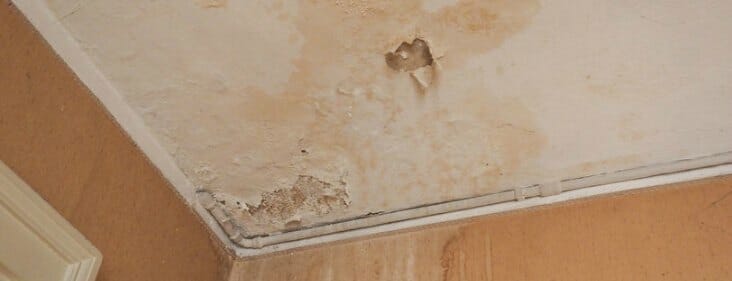6 Factors Behind Common Water Leaks in Homes and How to Fix Them
6 Factors Behind Common Water Leaks in Homes and How to Fix Them
Blog Article
We have unearthed the article pertaining to How to Find Water Leaks listed below on the net and believe it made good sense to share it with you over here.
/GettyImages-957479686-f3d2e677f2e749fc98aa207b474c5c1f.jpg)
Leaks not only cause waste of water but can also create unneeded damages to your residence and also promote undesirable natural growth. Water leakages may go undetected given that most of the pipework in our home is hidden. By understanding as well as looking for daily situations that trigger leaks, you can safeguard your home from future leakages and also unnecessary damages. Today, we will take a look at 6 leakage triggers that might be creating your pipelines to trickle.
Intruding roots
A lot of water leakages start outside the home rather than inside it. You may observe wet spots or sinkholes in your lawn, and that could indicate that tree roots are invading water lines triggering water to permeate out.
Corroded water systems
As time passes by, your plumbing system ages and also deterioration such as rust may begin eating away the pipes. This could be the reason for staining or bending on your pipes. This calls for an evaluation with your plumber right away. If our plumbing system is old, consider replacing the pipelines since they go to a higher danger of corrosion than the more recent designs.
Defective Pipeline Joints
The point at which your pipelines link is frequently the weakest web link in the waterline. Pipe joints can degrade in time, leading to water leaks. However, the majority of pipe joints are not conveniently noticeable. If you have loud pipelines that make ticking or banging sounds, specifically when the hot water is switched on, your pipe joints are possibly under a great deal of pressure. It is a good idea to have your plumber check your system yearly.
Immediate temperature modifications.
Extreme temperature changes in our pipes can cause them to expand and get all of a sudden. This development as well as contraction may trigger fractures in the pipes, specifically if the temperature level are below freezing. If you kept an eye on exactly how your plumbing works, it would be best. The existence of the previously stated circumstances frequently shows a high risk.
Poor Water Connectors
At times, a leak can be triggered by loose hoses and also pipes that provide your appliances. In situation of a water connections leakage, you might notice water running directly from the supply line or puddles around your home appliances.
Clogged Drains
Obstructed drains may be bothersome and also inconveniencing, however they can in some cases end up triggering an overflow bring about break pipelines. Keep removing any products that may decrease your drains pipes that can clog them to prevent such troubles.
All the above are causes of leakages yet not all water leakages result from plumbing leaks; some leaks might come from roof leakages. All leaks must be fixed promptly to stay clear of water damages.
Leakages not only trigger waste of water yet can also cause unnecessary damage to your home as well as advertise undesirable organic development. By looking and comprehending for everyday circumstances that create leaks, you can safeguard your house from future leakages and also unnecessary damage. Today, we will look at 6 leakage creates that may be creating your pipelines to leak.
At times, a leakage can be created by loose hoses and pipes that provide your home appliances. In situation of a water links leakage, you may discover water running straight from the supply line or pools around your home appliances.
How To Check For Water Leak In Your Home
How To Check for Leaks
The average household's leaks can account for nearly 10,000 gallons of water wasted every year and ten percent of homes have leaks that waste 90 gallons or more per day. Common types of leaks found in the home are worn toilet flappers, dripping faucets, and other leaking valves. These types of leaks are often easy to fix, requiring only a few tools and hardware that can pay for themselves in water savings. Fixing easily corrected household water leaks can save homeowners about 10 percent on their water bills.
To check for leaks in your home, you first need to determine whether you're wasting water and then identify the source of the leak. Here are some tips for finding leaks:
Take a look at your water usage during a colder month, such as January or February. If a family of four exceeds 12,000 gallons per month, there are serious leaks.
Check your water meter before and after a two-hour period when no water is being used. If the meter changes at all, you probably have a leak.
Identify toilet leaks by placing a drop of food coloring in the toilet tank. If any color shows up in the bowl after 10 minutes, you have a leak. (Be sure to flush immediately after the experiment to avoid staining the tank.)
Examine faucet gaskets and pipe fittings for any water on the outside of the pipe to check for surface leaks.
Undetected water leaks can happen without the home or business owner even realizing. If you suspect a water leak, but not able to find the source. It is time to contact a professional water leak detection service, The Leak Doctor.
How To Find a Water Leak In Your Home
https://www.leakdoctor.com/blog/How-To-Check-For-Water-Leak-In-Your-Home_AE197.html

I stumbled upon that article on How to detect water leaks in your home while looking around the internet. Make sure you take the opportunity to share this blog if you liked it. I thank you for reading our article about How Fast Water Damage Can Ruin Your Home.
Website Report this page